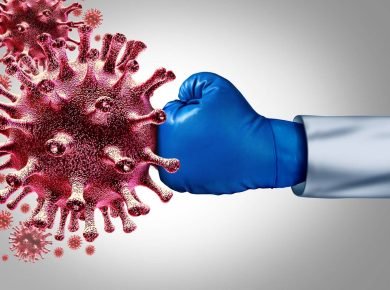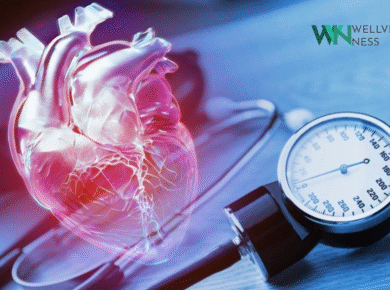Some individuals fast for religious or medical reasons, and fasting is a trendy diet fad that emphasizes when you eat rather than what you consume. Some people think that fasting lowers the risk of cancer or enhances medications that treat the disease. There isn’t much clinical data to back up these assertions, though. There haven’t been many studies on how fasting or calorie restriction may affect cancer therapy, including lowering side effects. Before fasting, cancer patients should speak with their oncologist or care team. Patients with chronic illnesses, diabetes, malnutrition, cancer cachexia, eating disorders, or wounds that need proper nourishment to heal may not be suitable candidates for fasting.
Table of Contents
What is fasting?
Instead of telling you what you may and cannot eat, fasting programs inform you when you can and cannot. When you fast, you abstain from eating for predetermined amounts of time, which might be a full day, week, or month. You can eat everything you want when you’re allowed to eat under many fasting strategies.
Intermittent fasting
You can regularly refrain for shorter periods by engaging in intermittent (short-term) fasting. You already have an eight-hour intermittent fasting period if you obtain eight hours of unbroken sleep every night. The 16:8 fast, a 16-hour daily continuous fast with eight hours during which you can eat everything you want, is when you skip meals for the four hours before bed and the four hours after waking up. Other fasting regimens need a full day of abstinence twice a week or roughly every two weeks.
Dieting: What is it?
Calorie-restriction regimens that reduce your overall food consumption are a common component of diets. They could also advise you on the kinds of food to consume to obtain those calories.
Intermittent Fasting Types
Among the variations of intermittent fasting are:
- Prolonged overnight fasting: This practice, which consists of only prolonging the time between supper and breakfast, is most frequently researched concerning cancer. When dining was less convenient than it is now, this was probably the “normal” diet that our ancestors followed. The 16/8 technique is a popular regimen that involves eating between 12 p.m. and 8 p.m. (16 hours of no food and 8 hours of unrestricted eating).
- Time-restricted feeding: This only specifies the hours during which food can be consumed and the hours during which fasting is permitted. It can be confused with extended overnight fasting.
- Short-term fasting: Short-term fasting comes in several forms. People who participate in alternate-day fasting, for instance, alternate between days when they are not restricted and days when they consume around 25% of their daily caloric intake. People who observe whole-day fasting typically eat normally (without limitations) five days a week and two days a week consume either no calories or 25% of their regular daily consumption.
Natural Killer Cells: What Are They?
A subset of white blood cells known as natural killer cells, or NK cells for short, are capable of eliminating aberrant or damaged cells, such as cancerous or virus-infected cells. They acquire their name because, in contrast to T cells, which need to have been exposed to a particular opponent to produce a targeted response, they can eliminate a threat without ever having come into contact with it.
Generally speaking, the patient’s prognosis improves with the number of NK cells found in the tumor.
Cancer-stricken mice were fasted for 24 hours twice a week for the study and then given free food in between fasts. The authors point out that this method stopped the mice from losing weight in general.
However, NK cells were significantly impacted by these fasting durations.
The mice had a decrease in glucose levels and an increase in free fatty acids, which are lipids produced by fat cells and can act as a substitute energy source in the absence of other nutrients, much as occurs in people, according to Dr. Delconte.
“NK cells learned to use these fatty acids as an alternative fuel source to glucose during each of these fasting cycles,” she explains. “They can enter the tumor and survive better because of this metabolic training, and the tumor microenvironment contains a high concentration of lipids, which optimizes their anti-cancer response.”
Short-Term/Intermittent Fasting and Cancer Treatment
Although the research is still in its early stages, intermittent fasting, or prolonged overnight fasting, may help at least some cancer patients.
Hypothesis
Intermittent fasting in cancer is generally thought to be caused by differences in how cells respond to stress, while possible pathways will be covered below. It is believed that healthy cells are far more adept at adjusting to their surroundings’ reduced nutritional requirements. On the other hand, because cancer cells are constantly expanding, they require more nutrition. This might make cancer cells more vulnerable to oxidative stress and DNA damage during treatment, such as chemotherapy, making them more sensitive to the drug.
Preclinical Research
Although they may not apply to people, animal research has indicated that intermittent calorie restriction (e.g., by extended nocturnal fasting) may be linked to improved cancer outcomes, at least in mice.
Research on lab-grown human cancer cells has also shown promise. For instance, short-term fasting seems to increase normal cells’ resilience to stress while simultaneously increasing the sensitivity of cancer cells to poisons. The explanation is believed to be that cancer cells are less able to react to environmental changes, such as temporary food scarcity, because of how quickly they grow and divide.
Intermittent fasting may also help cancer patients, according to research on cancer-free persons. These findings are covered below.
Studies of Humans
Early research on humans suggests that short-term fasting may decrease toxicity and increase therapeutic efficacy, while the majority of studies conducted to date have mostly examined the safety of intermittent fasting in cancer patients.
An investigation into the effects of brief fasting on chemotherapy was conducted in 2018. Individuals with breast and ovarian cancer were told to fast for 36 hours before and 24 hours after receiving their injection. During chemotherapy, those who fasted experienced decreased tiredness and an enhanced quality of life without experiencing any negative side effects.
Mechanisms, Justification, Measures, and Outcomes
It’s crucial to investigate the possible pathways by which intermittent fasting may impact cancer before human studies show that it has any positive effects. Numerous arguments have been put up that might justify the use of prolonged fasting and time-restricted eating in the prevention or treatment of cancer.
Reduced Inflammation
Numerous studies have indicated that inflammation plays a part in the initiation of cancer as well as the advancement and metastasis of pre-existing cancer. Although it is commonly recognized that blood inflammatory indicators are linked to a bad prognosis for cancer, persistent inflammation can also make cancer therapies less effective.
Intermittent fasting may lower inflammation, according to a 2019 study. Following a brief fast, the study found a drop in both monocyte counts and inflammatory activity.
Enhanced Sensitivity to Insulin
Fasting intermittently has gained popularity as a way to lower blood sugar and increase sensitivity. Conversely, research has shown that diabetes is linked to a worse prognosis for certain malignancies, including breast cancer.
Cellular Repair and Adaptation
There is evidence to support the previously mentioned idea that fasting reduces the ability of cancer cells to adapt and withstand environmental stimuli. Although it’s unclear if intermittent fasting (also known as “fasting-mimicking diets”) works similarly, the theory underlying it is encouraging.
Normal cells in the body go through a repair process when you fast (the cells equal to sleep). One of these mechanisms is autophagy, which is the process by which cells eliminate accumulated proteins within the cell (much like housecleaning). While cancer cells, which are aberrant in many respects and are not excellent housekeepers, could be as sensitive as or more susceptible to the damaging effects of therapy, normal cells in the body might be better able to withstand cancer therapies when feeding time-restrictedly.
Food Selections
Although meal choices are unrelated to intermittent fasting, many of the things that are hastily snatched late at night or in the morning are of poor quality. The elimination of these quick and processed items in the diet may be an indirect advantage of intermittent fasting.
What does the evidence say about fasting for cancer?
It is commonly acknowledged that eating a nutritious diet to lose weight may also lower the risk of cancer. At least 13 malignancies, including colorectal, pancreatic, and breast cancers, are known to be associated with obesity as a risk factor. There is conflicting evidence about the potential effects of fasting as a weight-loss method on risk or treatment outcomes; further research is required to fully understand this problem.
Researchers have looked at the following topics.
- Recurrence of breast cancer: According to researchers from several San Diego colleges, 13 hours of fasting each day may lower the risk of breast cancer mortality and recurrence. However, they assert that “to adequately test whether prolonging the nightly fasting interval can reduce the risk of chronic disease,” randomized studies are required.
- Prevention and better therapies: Separately, researchers from two other colleges in California concluded that cutting calories and fasting might lower the risk of cancer and increase the treatment’s ability to target cancer cells. According to a 2016 study from the University of Southern California, fasting may increase the sensitivity of cancer cells to chemotherapy while both protecting healthy cells and encouraging the generation of stem cells. Fasting may aid in immune system regeneration, according to a 2014 study conducted in mice by the University of California, San Francisco. Additionally, the researchers proposed that chemotherapy plus a two-day fast was more effective than chemotherapy alone at slowing the growth of cancer. They said, “Research on [calorie reduction] and fasting is ongoing, and conclusive findings await the results of those studies.”
- Development inhibition: Fasting may lower blood glucose levels, which inhibits the development of malignancies. The amount of glucose that cancer cells consume is significantly higher than that of normal cells. Making it simpler for cell membranes to digest insulin is one way that cells attempt to save energy during fasting. As a result, insulin is better able to eliminate blood glucose. Reducing the amount of glucose that cancer cells may access could prevent the growth of cancer.
- Encouraging cell regeneration: Through a process known as autophagy, might fasting assist the body in replacing damaged, unnecessary cells? Research indicates that autophagy deficiency lowers tumor-suppressing gene levels. Fasting is one technique to trigger autophagy, which stresses the body’s cells. To improve the efficiency of the cells’ operations, autophagy takes over.
In the end, additional study is needed before any judgments about how fasting affects cancer risk and therapy can be made.
The following extra advice should be kept in mind if you intend to fast and your care team is on board.
- Try a healthy, smart diet.
The kinds of foods that individuals should consume are part of several dietary guidelines for those who are worried about their risk of developing cancer. Diets that restrict the consumption of processed foods, alcohol, and red meat may lower the chance of developing cancer or its recurrence. In addition to fish and seafood, poultry, dairy products, and eggs, these dietary methods promote the consumption of fruits, vegetables, nuts, herbs, beans, and whole grains.
According to Lammersfeld, there are healthy methods to get a minimum of 50 grams of protein per day, which will help you retain muscle mass. Lean proteins include fish or chicken breast, plain Greek yogurt, a protein smoothie, or beans, peas, and lentils.
- Watch out for dehydration.
The stress of a fasting regimen may make your body’s demand for water even more pressing. Therefore, you should still drink a lot of water to keep hydrated even when you’re not eating. Maintaining adequate hydration helps in hormone regulation, nutrition delivery to your cells, acid-base balance, and the removal of toxins and damaged cells that may be broken down while fasting.
Patients with cancer should be especially mindful of their water levels. You may already be losing water due to diarrhea, nausea, vomiting, or fever as a result of cancer or cancer therapy side effects. Dehydration may also be exacerbated by some drugs you take.
Recognize the dangers of fasting.
According to Lammersfeld, any potential advantages of fasting must be weighed against the nutritional concerns, which include hunger, malnutrition, and possibly muscle loss, even if research on the topic is still underway.
“Cancer patients may benefit more from intermittent fasting than from full fasting,” she explains. Additionally, on days when you are not fasting, watch how much you eat since too many calories might negate some of the advantages of intermittent fasting.
A Note From Very Well
More study is required to completely understand the potential impact of intermittent fasting on cancer patients, despite several pathways suggesting it may increase treatment efficacy while reducing side effects.
As a risk-reduction tactic, nevertheless, the evidence is greater, especially for overweight people. The two most prevalent preventable causes of cancer today are obesity and tobacco use, and the incidence of cancers associated with obesity is increasing, especially in young individuals.
Additionally, it is important to keep in mind that intermittent fasting does not provide any information regarding dietary choices; a balanced diet rich in fruits and vegetables and low in processed meals is recommended for everyone, cancer patient or not.

















1 comment